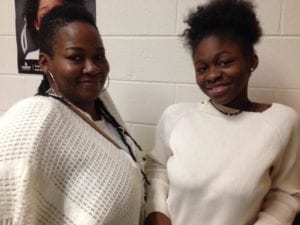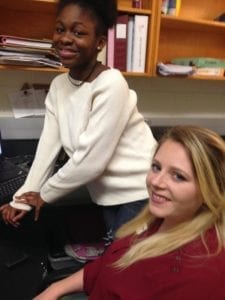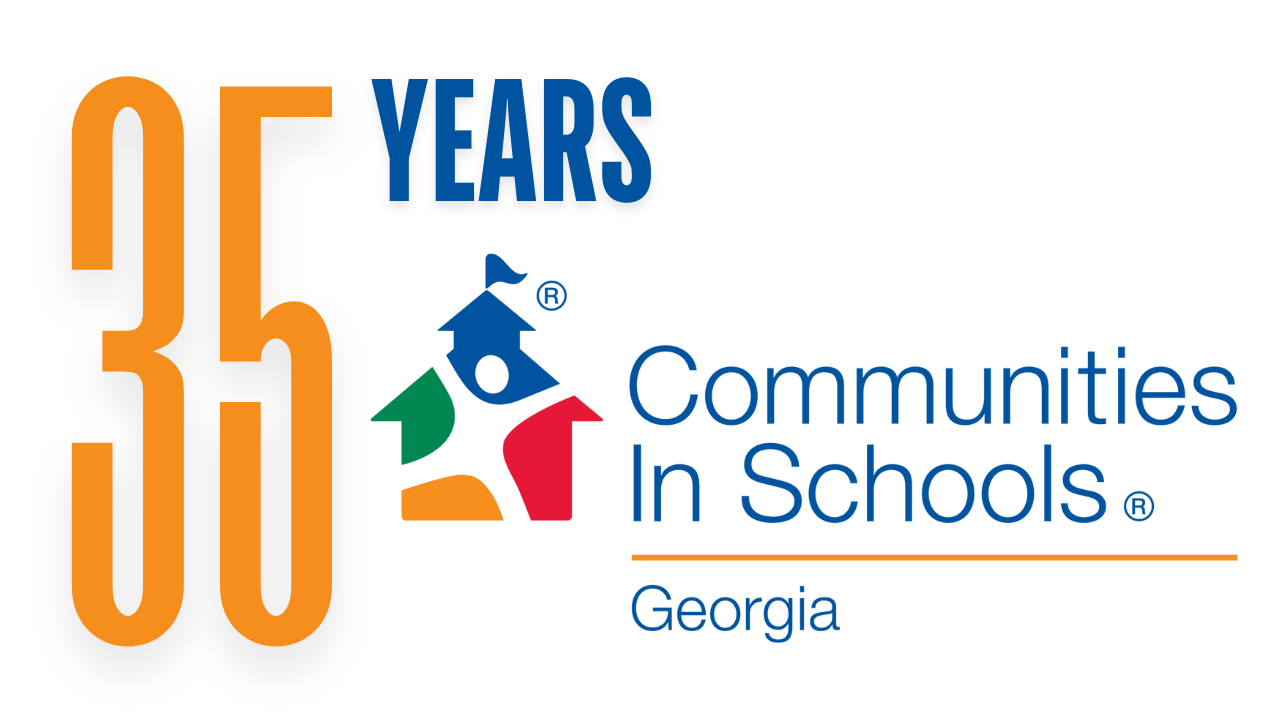So often we get so caught up in our differences that we forget, whether we admit it or not, that at our core we’re all the same.
We all bleed red. We all want to be loved and accepted. We’re all human.Keep that in mind as you read the story of 15-year-old Jemariya Patterson and her mom La Toya, who at just 34 years of age has been battling heart disease now for nearly a decade.
Keep in mind too that Jemariya is a good student who could spend an entire day in a math class and never get bored; and that La Toya is a single mother of five who just wants to be able to provide a roof over their heads, clothes to wear, and food to eat.
 Indeed, for years, she did the best she could. Then at age 26 doctors discovered she had congestive heart failure and she was forced to quit work, draw disability and for the first time in life apply for food stamps just to survive.
Indeed, for years, she did the best she could. Then at age 26 doctors discovered she had congestive heart failure and she was forced to quit work, draw disability and for the first time in life apply for food stamps just to survive.
“I’d been working since I was 16,” she said recently. “I’m not an alcoholic. I’m not a drug addict. I just got sick and everything trickled down.”
And so for every step forward she has been able to make for herself and her children, she has had to take two steps back. Sometimes because she was back in the hospital. Other times because stuff happens like when the septic tank backed up last year at the trailer park where the family was living and the only place left to go was another hotel room.
That’s where they were when a social worker referred Jemariya to Kara Thompson, site coordinator at Stockbridge High School for Communities In Schools of Georgia, the dropout-prevention program.
Up until then, they’d bounced from county to county, from hotel to hotel, from couch to couch. It had been that way since seventh grade when Jemariya “watched people put all our things out on the street.”
She was angry. School became her favorite place to be.
“It was my break from everything I was dealing with at home,” she said.
By the time she met Thompson Jemariya was “dying for somebody to ask what was wrong” in her life.
Within weeks of meeting the family, Kara Thompson had found them a place to call home.
“It was as if God sent us an angel,” La Toya said. “I was working with a social worker and it was always ‘when I’m able to get to you I will.’ I could never get any help.”
Thompson made the difference but just three months later, La Toya was back in the hospital. When she failed to complete the required paperwork on time to renew her disability payments, the benefits stopped.
Because she was unable to pay rent, her landlord threw the family out. Just like that, they were back in a hotel room, and the cycle had started anew.
That’s where I left off on Tuesday when I wrote about Kara Thompson’s herculean efforts to help find Jemariya and her family a home, but there was something different about this time. Jemariya and her mom had something they didn’t all those times before. This time they had Kara Thompson to walk alongside them. They had hope.
According to the National Center for Education Statistics, more than 37,000 Georgia students had experienced periods of homelessness during the 2014-15 school year, Jemariya included.
Not only are homeless students invisible, most of us are unaware they even exist. They struggle to stay in school, perform well, and form meaningful connections with peers and adults.
They are much more likely to fail and ultimately drop out of school than their non-homeless peers.
That’s why programs like Communities In Schools are so important. They provide the infrastructure students like Jemariya need to face the challenges that come with having no real home.
That’s a good thing but it can’t be understated how important it is to have site coordinators like Kara Thompson who care enough to go the extra mile on their behalf.
There was nothing in her job description that required her to find housing but she did.
Before Communities In School, Jemariya said her family had nothing. She was embarrassed about living pillar-to-post. And she was angry. “I don’t want to blame the situation I was in but I was not a happy person,” she said.

“If it weren’t for Mrs. Kara I don’t know where my head would be and I don’t know where my family would be.”
The bad news is there’s still yet a lot of uncertainty.
La Toya’s heart is still working well below capacity. She gets tired easily. She can’t walk long distances. She can’t climb stairs. She must see a doctor every 60 days.
The good news is with the help of a church Thompson connected her with, she and her children were able to move into another home last week, and both Jemariya and Kara Thompson are being considered for this year’s Communities in Schools of Georgia’s Champions Awards, given annually to a CIS student who overcomes obstacles and barriers to show marked improvement in attendance, behavior and coursework; and the site coordinator who goes above and beyond to help a student.
I mentioned early on two things I hoped you’d keep in mind as you read their story. Here’s one more I hope you never forget.
Despite their challenges, kids like Jemariya have big dreams. They do not choose to be homeless nor do they want it to define them.
It is time we made sure it doesn’t define their future either.
RELATED VIDEO
This article was written by Gracie Bonds Staples and was originally published at AJC.COM

